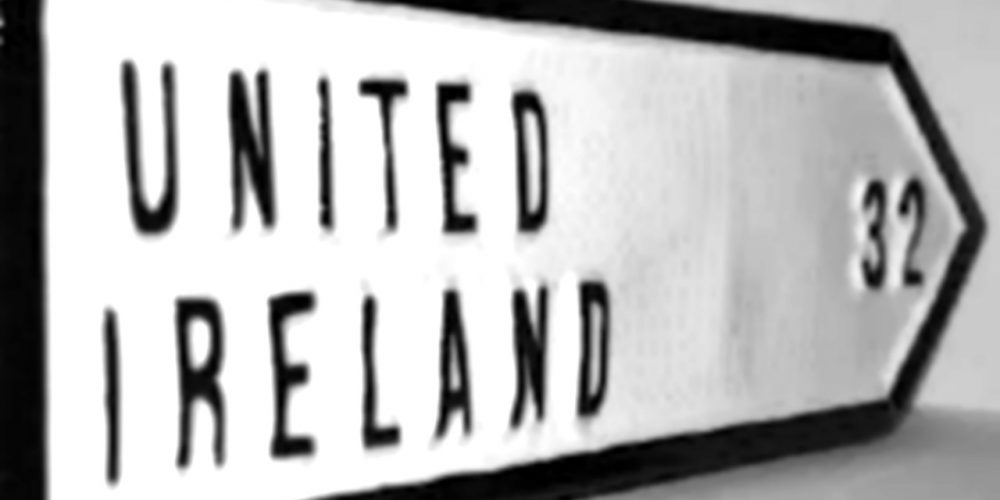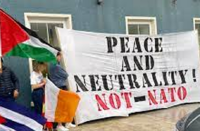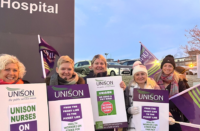Late in January some three hundred activists from all over Ireland gathered in Liberty Hall, Dublin, to celebrate the centenary of the first Dáil Éireann.
The event, organised by the Peadar O’Donnell Socialist Republican Forum, attracted a wide range of forces, including trade union and community activists and women’s and cultural groups as well as communist and republican activists.
The first session in the morning was devoted to celebrating the establishment of the first Dáil in January 1919, following the 1918 general election called by the British government. Traditionally the Irish Party took their seats in London; but, after centuries of colonial occupation and violent repression, the majority of elected representatives, elected on behalf of Sinn Féin, refused to take their seats in the British colonial parliament and instead made the decision to establish an Irish parliament in Dublin. Only the pro-imperialist unionist members took their seats in London.
The historian Seán Byers gave a historical overview of this period. The first Dáil adopted a number of important documents at its first sitting, including the Declaration of Independence, the Democratic Programme, and the Appeal to the Nations of the World.
The second session of the morning was devoted to reflection, “Ireland in transition: A programme unfulfilled,” looking back over the past hundred years at the advances made by working people, with the complete failure of the capitalist establishment, which had quickly abandoned the Democratic Programme adopted in 1919—already watered down by Sinn Féin, as it was far too radical and far too challenging for them.
Prof. Kathleen Lynch and Dr Fearghal Mac Bhloscaidh addressed this legacy and the carnival of reaction that paralysed any progressive movement forward. Kathleen Lynch also offered an interesting insight into how we could build for progressive and radical advance. Dr Mac Bhloscaidh spoke of the stranglehold of sectarianism and its use as a weapon to block advance and prevent the unity of the people.
The afternoon session was devoted to “Building a People’s Dáil.” A number of invited speakers addressed six motions that went before the assembled delegates, covering such areas as “For a democratic Ireland,” “For a neutral Ireland,” “The global environmental crisis,” “Partition,” “People’s ownership,” and “Cherishing all the children of the nation equally.”
Regarding partition, the motion states: “Partition was a most grave and anti-democratic act imposed upon our people by Britain and its allies in Ireland. Partition can only be addressed by confronting its role in denying democracy in both parts of Ireland, producing the ‘carnival of reaction’ that Connolly foresaw, North and South. We are affirmed in our belief that it is only the working people of Ireland that have the capacity to end partition and unite our people, to establish meaningful national sovereignty and national independence in order to secure their own material needs and interests.
“We resolve to strengthen the unity of people’s organisations on a national basis and to support campaigns and solutions that strengthen the unity of our people in an all-Ireland struggle. In line with the historic tradition of Tone, Connolly, and Pearse, we oppose all manifestations of sectarianism and division and oppose all groups and forces that wish to sow further division among our people.”
The motion on people’s ownership and the rejection of capitalist ownership and domination by imperialism presents a different way forward for the people. It states: “We reject the narrow concept of democracy that confines the people’s participation to a formal vote every four or five years. We believe that all the means of producing the necessities of life, including the control of capital, all natural resources, both land and sea, should be owned and controlled by and for the people of Ireland. These resources are to be used only in a sustainable way to enhance the social and cultural development of our people, and not for the profit of a tiny elite or transnational corporations. It is the people’s wealth and should, therefore, be owned by us.”
A new “Democratic Programme for the 21st Century” was also adopted, based on the Irish people’s long struggle for freedom, embracing the Proclamation of the Irish Republic (1916) and the strategic views of both James Connolly and Patrick Pearse. The programme adopted contains two central and strategic approaches. In 1916 Pearse wrote that “the nation’s sovereignty extends not only to all the material possessions of the nation, the nation’s soil and all its resources, all wealth and all wealth-producing processes within the nation. In other words, no private right to property is good as against the public right of the nation.”
Also writing in 1916, James Connolly stated that the reconquest of Ireland involves “taking possession of the entire country, all its powers of wealth-production and all its natural resources, and organising these on a co-operative basis for the good of all.” In April 1916 he insisted to the Irish Citizen Army that “we are out for economic as well as political liberty.”
Planning is now under way to hold a number of regional People’s Dálaí around the country, and to involve a greater number of people’s organisations and activists in discussing the documents adopted in January and build grass-roots campaigns as well as a forum for deeper political debate.






